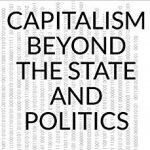(ThyBlackMan.com) An inflection point is a period when the cumulative effects of recent events can move their direction up or down, left or right, or make things better or worse. Looking at events over the summer, I offer three examples of issues that appear to have reached their inflection points: economic, political and cultural.
Economic: Industry 4.0 is changing the nature of American capitalism. The so-called “gig economy” and “side hustles” have supplanted “job security” for many workers. Trade wars with China, Canada, Mexico and European Union countries are revealing the inter-connectedness of global supply chains. And the administration’s exclusive reliance on tariffs, with no apparent broader trade policy, is causing wild fluctuations in capital markets.
Earlier this summer the Business Roundtable, comprised of the majority of major American corporations i.e. Walmart, J.P. Morgan, Boeing and General Motors, released a revised statement of the “purpose of American corporations.” Gone was the outlook championed by  economist Milton Friedman, that had held sway for the last several decades, that corporations existed solely to maximize returns for their shareholders. The new statement emphasized corporations’ responsibilities to their stakeholders, including employees, customers and citizens. Under pressure to address persistent “income inequality”, it seems that the corporate chieftains who signed onto this new mission statement want to put a more kindly face on a corporate culture better known for its rapaciousness.
economist Milton Friedman, that had held sway for the last several decades, that corporations existed solely to maximize returns for their shareholders. The new statement emphasized corporations’ responsibilities to their stakeholders, including employees, customers and citizens. Under pressure to address persistent “income inequality”, it seems that the corporate chieftains who signed onto this new mission statement want to put a more kindly face on a corporate culture better known for its rapaciousness.
Whether this new ethos takes hold remains to be seen. But what has become apparent is that the current direction of capitalism, as practiced in America, is not sustainable as its benefits continue to be unequally distributed and more young people have begun to identify with “socialism” as the preferred economic system. Indeed comparisons of the present economic era to the 1930s does not bode well if there is no course correction as we know that era ended in a second world war.
Political: The two party system that has dominated American politics since the mid-1800s is under severe stress. The Democrats are fracturing over which direction to choose: Democratic Socialism and big government programs, or incrementalism and building on the successes of the Obama administration. The Trump Republicans have all but abandoned their feigned beliefs in small government and fiscal responsibility, running up trillion dollar deficits and a record twenty-three trillion dollar national debt.
The Citizens United Supreme Court decision declaring that “money is speech” and allowing unlimited and undisclosed campaign contributions has polluted the political process to the point that the main criteria to judge any candidate’s viability for major office are not their ideas but, “can they raise the money.”
A lightly reported decision this summer by the U.S. Court of Appeals for the 10th District may have even more far-reaching effects. The Court found that a “faithless elector” in Colorado – a member of the Electoral College who did not vote for the candidate who won his state in the 2016 presidential election – was perfectly within his rights to do so. If upheld by a Supreme Court decision, this could lead to a totally unpredictable Electoral College where electors – who are largely unknown – could swing future presidential elections to whomever they wish, nullifying the popular vote completely.
Cultural: Thanks to the New York Times’ 1619 Project, Ghana’s Year of Return and other commemorations of the advent of the Atlantic slave trade, there has been a re-examination of the role of enslaved people in building America. From southern plantations (slave labor camps), to Wall Street, to New England textile mills, to trans-Atlantic trade (the beginnings of modern globalization), it is being better understood how the institution of slavery propelled the United States to economic preeminence.
This renewed interest in reinterpreting American history has also unearthed some long-buried events like the Red Summer of 1919. As the United States was emerging from World War I and black veterans were returning seeking to reap the benefits of “fighting for freedom” in Europe, the country was convulsed with no less than thirty-eight deadly attacks on African-American citizens. Virtually all of the major cities in the country, including New York, Philadelphia, Baltimore, Chicago and Washington, D.C., witnessed “race riots” where whites set upon and killed innocent blacks.
A report on the attacks by Dr. George Edmond Haynes was published by the New York Times in October of 1919. The Times called it “the new negro problem” and according to its characterization of events, the riots were caused by black leaders who “no longer showed a sense of appreciation” for what whites had suffered in the Civil War that had “bestowed on the black man opportunities far in advance of those he had in any other part of the white man’s world.” Now in 2019 we hear echoes of that earlier time with chants of “send her back”, referring to a sitting member of Congress, and a president spewing “love it or leave it” hate rhetoric aimed at “ungrateful” people of color who dare to express any criticism of his racist policies.
Looking at these issues – economics, politics and culture – it’s clear to see that each has reached an inflection point. Under the cumulative effects of recent events, the status quo will be difficult, if not impossible, to maintain. In each case, things will move up or down, left or right, get better or worse. If past is prologue, the future course is not preordained, but is up to us to determine. And the results of local, state and national 20020 election contests will certainly be pivotal in each case.
Staff Writer; Harry Sewell

















Leave a Reply